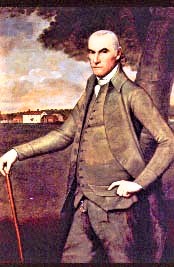 Essay Read by Constituting America Founder, Janine Turner
Essay Read by Constituting America Founder, Janine Turner
Republic or Democracy?
A distinction with a difference to the American Revolution.
People often use the term “democracy” when referring to the United States. The distinction between a republic, which is technically what we are, and a democracy seems lost on those who intermingle the terms as if they were synonyms. If you note that we are not a democracy, but a republic, you risk being mocked as strict constructionists overly wedded to technical definitions and unwilling to acknowledge the importance of popular sovereignty and the will of the people in our system.
This is unfortunate, as the question of whether we are a democracy or a republic is an important one, complex, and reliant on clear definitions of words and their use. Strictly speaking, the United States is a representative Republic, not a democracy. The distinction has a difference. It greatly influenced the American Revolution, and arguably saved the future Republic from ruin in its darkest days.
First, some definitions. Merriam-Webster (MW) defines democracy, a noun, as “a government by the people” characterized by “rule of the majority,” and as “a government in which the supreme power is vested in the people and exercised by them directly or indirectly through a system of representation usually involving periodically held free elections.”[1] This, of course, does a pretty good job of describing what most of us believe our government is. We the People are sovereign, and we exercise that power through elections. So far so good.
As for “republic” the definition is similar, but with several important additional elements. Republic is also a noun, meaning (according to MW), “a government having a chief of state who is not a monarch and who in modern times is usually a president,” and “a government in which supreme power resides in a body of citizens entitled to vote and is exercised by elected officers and representatives responsible to them and governing according to law.”[2]
From these definitions it is clear why there might be some confusion. A representative republic uses “democratic means” to manifest the consent of the governed. We vote for representatives, who vote on measures. Voting is democracy in action, but that does not make the United States a democracy. The measures that our representatives vote on are constrained by law and the Constitution. We do not have pure democracy or “rule by the majority” because we have constitutionally protected rights that cannot be voted away, operate under rule of law, and have, till recently, limited government with limited powers. We also have, however, an expanded voting population that is not limited by aristocracy, wealth, property ownership, or gender. Any citizen, over 18 years of age, can vote. One could say, therefore, that the United States is a democratic representative Republic.
While some might wish to believe so, the founders did not invent the concept of consent of the governed, nor was America the first democracy or republic. Discussion of such concepts had been going on for centuries and republics existed prior to the American Revolution. What the American founders did do was expand the definition of a republic so that it gave more power to the popular will of the people. They were merging, more completely, the idea of a law-based government with the concept of consent of the governed. While in retrospect we see their efforts as woefully incomplete, for the time it was a revolutionary step towards popular sovereignty. Many doubted such an expansion of representation could work over such a large population or territory.
The original text of the United States Constitution never mentions the word democracy, and only mentions republic as a form of government once in Article IV, Section 4 (“The United States shall guarantee to every State in this Union a Republican Form of Government…”). Interestingly, that clause refers to the states, and not the federal government itself. Throughout the text the founders refer to the United States as the “union” or as the “United States” but never a republic or a democracy. The Declaration of Independence does not use either term at all.
That said, the structure laid down in the Constitution contains the elements that MW described, including a “chief of state,” and that power lies with a body of “elected officers and representatives” who vote on the laws that govern the nation. All these officials govern according to law.
That is a Republic, no doubt.
When asked by “Mrs. Powel” upon the passage of the Constitution in 1787 what we had created, Benjamin Franklin famously replied, “a Republic, if you can keep it.”[3]
It is in the phrase “if you can keep it,” however, where we find the true impact of the distinction between republic and democracy. As Richard R. Beeman, Ph.D. writes “we find ample evidence that democratic revolutions do not inevitably lead to national harmony.…We see that the expression of the ‘popular will’ can create a cacophony of discordant voices…In far too many places around the world today, the expression of the ‘popular will’ is nothing more than the unleashing of primordial forces of tribal and religious identity which further confound the goal of building stable and consensual governments.”[4]
What Franklin was concerned about, what he was so prescient about, was the difficulty in preserving the union. That concern was not an idle one, as the Revolution had proven. To keep the union together required a structure that limited conflict and cooled the passions of the mob yet provided ample enough rights and liberties to both the citizen and the to the former colonies to make them support and adhere to the union. Again, quoting Beeman, “the question that has plagued all nations aspiring to democratic government ever since: how to implement principles of popular majority rule while at the same time preserving stable governments that protect the rights and liberties of all citizens.”
In 1776 a stable union did not exist. What did exist was a loose confederation of militia forces and citizens from the thirteen colonies, operating under an ill-defined structure to which their commitment continually wavered. Support for the revolution was not, by any means, universal within these colonies, and the debate between revolution and compromise with Britain raged. To preserve the effort, the founders knew they had to promise both protections from mob rule and protections for popular sovereignty. That was not a trivial endeavor.
Alexander Hamilton wrote of the challenge in a letter to John Jay in November 1775. In that letter he addressed the “passions of men” which provided for a “great danger of fatal extremes.” Hamilton wrote:
When the minds of these are loosened from their attachment to ancient establishments and courses, they seem to grow giddy and are apt more or less to run into anarchy…. In such tempestuous times, it requires the greatest skill in the political pilots to keep men steady and within proper bounds…[5]
Hamilton was concerned about conflict between New York and New England, which threatened a united stance vis-à-vis England. To control intra-colonial conflict, he argued against too much popular sovereignty, i.e., too much democracy. He recognized the need to hold the passions of men at bay, and the skill needed to do that while continuing to keep the support of the colonies.
As the American Revolutionary War against Britain intensified, George Washington was plagued by irregular support from both the colonies and the Continental Congress. His ability to avoid catastrophic defeat is legendary. What perhaps was his greater brilliance was the ability to hold the forces together, keep the states from fighting each other, and channeling the passions of his fighting forces away from each other and towards the enemy. As his letter to the colonies from Valley Forge attests, the distributed nature of the revolutionary coalition put the future of the war in great jeopardy. “In a word, the United and respective exertions of the States cannot be too great, too vigorous in this interesting work, and we shall never have a fair and just prospect for success till our Troops (Officers & Men) are better appointed and provided than they are or have been.”[6]
Washington knew very well that a citizen force of volunteer militiamen, responding only to popular will, while appealing to the revolutionary impulse, was no substitute for a centrally commanded, resourced, trained, and managed force of professional soldiers. Once launched, support to the war had to be controlled by a chief executive and protected by a Congress of representatives whose laws mattered and lasted. Counter to popular legend, it was not the minutemen who won the war. Washington could never have achieved victory had he remained subject to the democratic vagaries of thirteen colonial assemblies guided only by majority rule. “Military necessity required American leaders to change their perceptions of standing armies and challenged their republican ideals of volunteer, part-time military service…ultimately it was the Continental soldiers that would secure victory…”[7]
That the colonies agreed to the creation of the Continental Army is a critical component of the success of the revolution. It is also remarkable given the antipathy they held against standing armies. James Madison, years later during the debates over the Constitution, exposed that antipathy, stating that a “standing military force, with an overgrown Executive will not long be safe companions to liberty,” and that the “means of defense against foreign danger, have been always the instruments of tyranny at home…. armies kept up under the pretext of defending, have enslaved the people.”[8] Yet, despite that view, such a force was authorized by the fledgling republic, saving the effort and leading to victory.
Today, when a riot or mass protest occurs, people in the crowd can often be heard chanting, “this is what democracy looks like.” In a way they are correct, which is why we are a representative Republic.
John Adams famously wrote, in a letter to John Taylor in 1814, “…Democracy never lasts long. It soon wastes, exhausts and murders itself. There never was a Democracy Yet, that did not commit suicide.” In that same letter, he wrote, “the Athenians grew more and more Warlike in proportion as the Commonwealth became more democratic.”[9] The founders, students of history and great thinkers including those of ancient and classical history, knew the distinction. That they did, saved the new nation.
Our founding was saved by the skill of our “political pilots” to craft a compromise between popular will and the rule of law. We are democratic, but we are not a democracy. We the People are those whose consent is required, but the Constitution is the Supreme Law of the Land.
We would have never made it otherwise.
 Jay McConville is a military veteran, management professional, and active civic volunteer currently pursuing a Ph.D. in Public Policy and Administration at the L. Douglas Wilder School of Government and Public Affairs, Virginia Commonwealth University. His studies focus on improving health outcomes through food assistance policy. Prior to beginning his doctoral studies, he held multiple key technology and management positions within the Aerospace and Defense industry, including twice as President and CEO. He now works as a personal trainer and works to improve health and fitness through both his work and study. Jay served in the U.S. Army as an Intelligence Officer, and has also been active in civic and industry volunteer associations, including running for elected office, serving as a political party chairman, and serving multiple terms as President of both his industry association’s Washington DC Chapter and his local youth sports association. Today he serves on the Operating Board of Directors of Constituting America. He holds a Bachelor of Arts in Government from George Mason University, and a Master of Science in Strategic Intelligence from the Defense Intelligence College. Jay lives in Richmond with his wife Susan Ulsamer McConville. They have three children and four grandchildren.
Jay McConville is a military veteran, management professional, and active civic volunteer currently pursuing a Ph.D. in Public Policy and Administration at the L. Douglas Wilder School of Government and Public Affairs, Virginia Commonwealth University. His studies focus on improving health outcomes through food assistance policy. Prior to beginning his doctoral studies, he held multiple key technology and management positions within the Aerospace and Defense industry, including twice as President and CEO. He now works as a personal trainer and works to improve health and fitness through both his work and study. Jay served in the U.S. Army as an Intelligence Officer, and has also been active in civic and industry volunteer associations, including running for elected office, serving as a political party chairman, and serving multiple terms as President of both his industry association’s Washington DC Chapter and his local youth sports association. Today he serves on the Operating Board of Directors of Constituting America. He holds a Bachelor of Arts in Government from George Mason University, and a Master of Science in Strategic Intelligence from the Defense Intelligence College. Jay lives in Richmond with his wife Susan Ulsamer McConville. They have three children and four grandchildren.
[1] https://www.merriam-webster.com/dictionary/democracy
[2] https://www.merriam-webster.com/dictionary/republic
[3] Mrs. Powel was not just a random woman on the street. She was an influential and important member of society, close in association with George Washington. Read more of her interesting story here: https://www.mountvernon.org/library/digitalhistory/digital-encyclopedia/article/elizabeth-willing-powel/
[4] https://constitutioncenter.org/education/classroom-resource-library/classroom/perspectives-on-the-constitution-a-republic-if-you-can-keep-it
[5] https://founders.archives.gov/documents/Jay/01-01-02-0099
[6] https://www.gilderlehrman.org/sites/default/files/inline-pdfs/t-03706.pdf
[7] https://www.battlefields.org/learn/articles/militia-minutemen-and-continentals-american-military-force-american-revolution
[8] https://teachinghistory.org/history-content/ask-a-historian/24671
[9] https://founders.archives.gov/documents/Adams/99-02-02-6371
Click here for First Principles of the American Founding 90-Day Study Schedule.
Click here to receive our Daily 90-Day Study Essay emailed directly to your inbox.

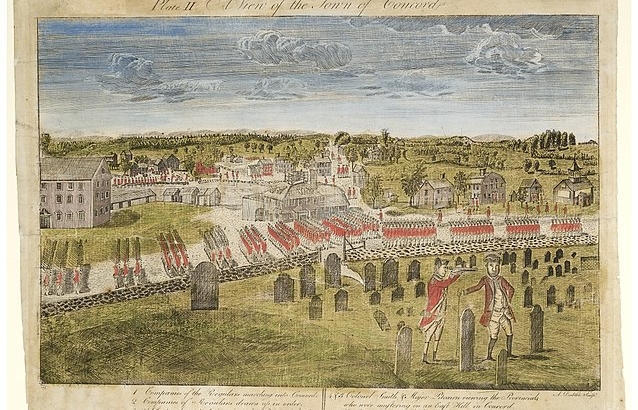 https://en.wikipedia.org/wiki/American_Revolutionary_War#/media/File:British_Army_in_Concord_Detail.jpg
https://en.wikipedia.org/wiki/American_Revolutionary_War#/media/File:British_Army_in_Concord_Detail.jpg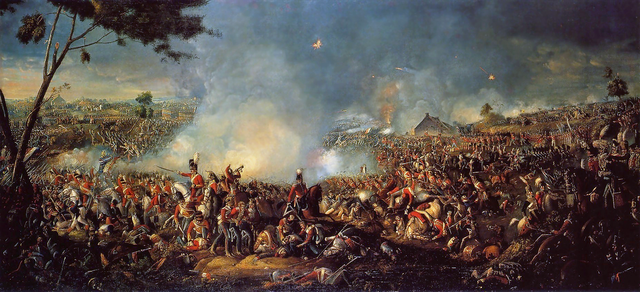 https://en.wikipedia.org/wiki/British_Empire#/media/File:Battle_of_Waterloo_1815.PNG
https://en.wikipedia.org/wiki/British_Empire#/media/File:Battle_of_Waterloo_1815.PNG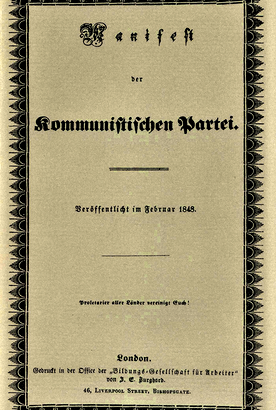 https://en.wikipedia.org/wiki/The_Communist_Manifesto#/media/File:Communist-manifesto.png
https://en.wikipedia.org/wiki/The_Communist_Manifesto#/media/File:Communist-manifesto.png
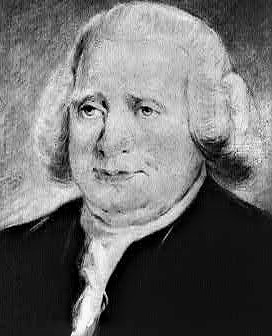
 Podcast by Maureen Quinn.
Podcast by Maureen Quinn.